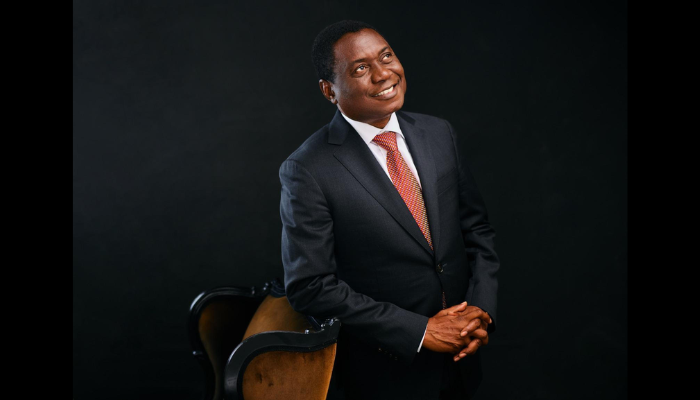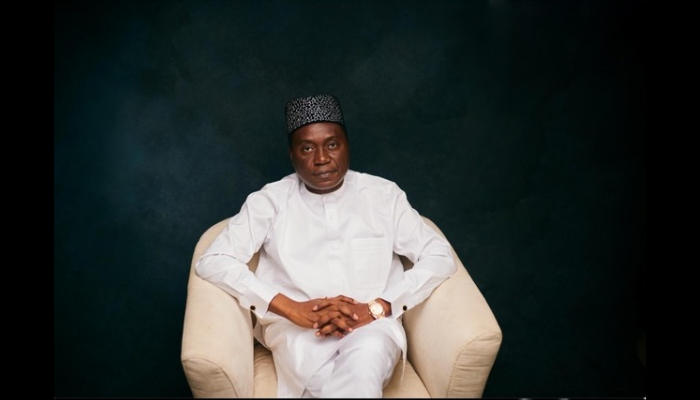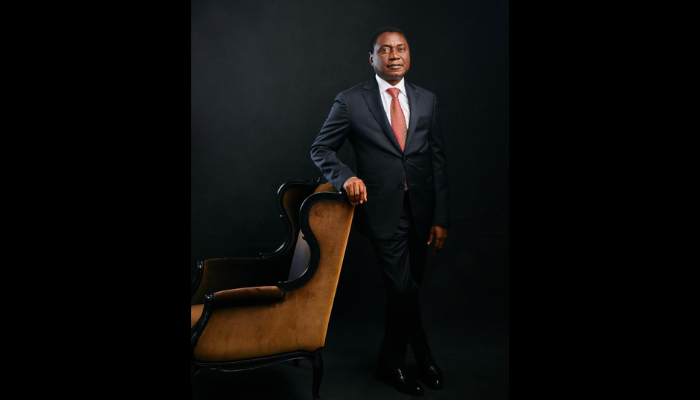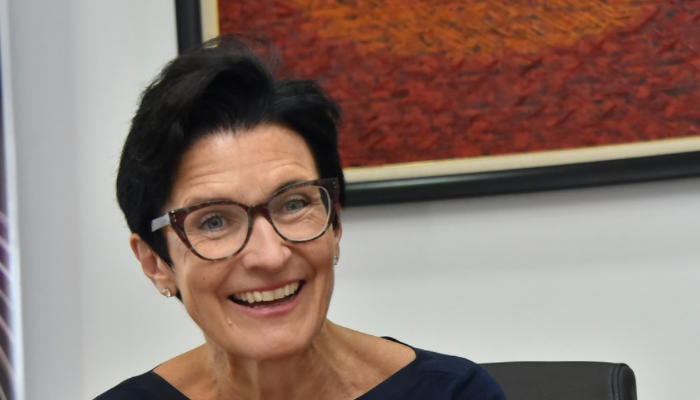Thomas Etuh, the Nigerian fertiliser billionaire, is a silent operator who has conquered all despite his rather humble beginning in the then Benue State. Etuh never speaks to the media, but during his recent travels in Europe, BusinessDay Publisher FRANK AIGBOGUN caught up with him and sat him down for a rare media conversation lasting more than two hours. The result is this inspiring story of a fighter and a man of many parts whose attitude to life has been transformed by the passing of his wife, the one who stood shoulder-to-shoulder with him while the business was being built. Excerpt….
Many know you as Nigeria’s fertiliser baron, can you tell our readers how it started out in life?
Um, I know you will begin with a question about the fertiliser business. Let me start by saying that entering the fertiliser business for me was by default. My background was in commodity trading, and even this was also by default.
Why? By the time I finished school, all I wanted to do was be a pilot; my desire was to train and learn to fly aeroplanes. So, I got admission to the Aviation College in Zaria, where the fee then was N14,000, but my parents couldn't pay the fees. We are from the then-Benue state before Kogi state was carved out of it. Benue State did not give scholarships for study at the College of Aviation, but other states in the north did. My friends from other parts of the North secured scholarships, and they went to the aviation college, but I could not. That, for me, was the first shock in life, being held down just by reason of where I am from. My father said to me, my son, I cannot afford the fees for you to train as a pilot. I had to think of something else to do. This was how I began trading; that is how I entered the commodity business, and the intention was for me to do it for a year to raise money from trading to pay for my training at the aviation college.
The idea was to defer my admission for a year to enable me to raise money for the fees. I thought it was going to be that easy. Unfortunately, it was not easy. So, by the time I could come up with the money, my friends had all graduated, and some of them were already flying for the then Nigerian Airways, so at that point, I decided to continue my trading business and then go on to take a diploma at Ahmadu Bello University.
“I got admission to the Aviation College in Zaria, where the fee then was N14,000, but my parents couldn’t pay the fees.”
The long, fruitful journey into the fertiliser business:
And again by default, as the years passed, a very good friend of my dad came to see him in our house and told him he wanted to set up a fertiliser blending plant in Kaduna and asked if my dad could invest with him. My dad did not have the money to invest. As the conversation continued, I heard what they were talking about. At one point, I jumped in and said that I was interested and that I would invest in the business. He and my father looked at me with amusement and thought this small boy was just writing a check because he had a bank account. It was like, Where will this boy find the money? Anyway, I was told the amount, and then I wrote a check and handed it over to my father’s friend, who accepted it. It was an upcountry check, and those days it will take 21 days for upcountry checks to clear. Twenty-one days later, the check cleared, and my father’s friend called my dad and told him the check was cleared. One day we had a morning devotion at home, and my father and mom called me into their bedroom and asked me, “My son, where did you find the money? Have you started stealing?” There was some silence, and then I said no, sir. I began to explain to them that I had been doing some trading in Kabuna. I reminded my dad about the visit of one of his friends from Cargill (a global commodities company), and I told my parents that I had become one of the buying agents for the company in the north. At that point, my dad travelled to see his friend in Kaduna to ascertain for himself what level of trading I had been involved in. After he got the confirmation that I was doing a genuine business, he came to see me, and by the time my dad came to see me, he found that I had in fact become a millionaire. This was in 1988. My dad was quite happy with me after hearing my story, but then he still wanted me to go for further studies. He said to me, “You have to get a proper job; we are not business people in the family; you have to have a career, one with a pensionable job with stability and pride, preferably in the civil service.” But my mind was made up; I wanted to continue the commodities trading business. In the blending business of my dad’s friend, I was very small; I had only around 10 percent in the fertiliser blending business, but I became a distributor for the company as part of my commodities trading business. You see, that is how I entered into the fertiliser business.
Why do your close friends call you Thomas who saw pepper?
Apart from being a fertiliser distributor, I also traded in whatever I could find profitable. I will buy garri from the south, even as far as the then-Cross River state, and take it to the north. I will take from the south whatever was needed in the north. I will buy Okazi leaf, Ugwu leaf, take onions from the north to the south, and take mangala fish from Maiduguri to Onitsha to Nnewi. Most of my Ibo friends today I first met from spare parts trading because I was importing spare parts and selling spare parts to them. So, I have done a lot of general trading.
And when my friends say I saw pepper, they are referring to when I got into the business of exporting fresh pepper to London. I started that pepper business after meeting a Jewish guy who asked if I could send this Scotch Bonnet pepper fresh to London. I thought it was a very simple thing to do. Go to the central market in Kaduna, buy a lot of pepper, get some cartons, and send it to London. But it would not pass the test by Ports Health in London because before it gets there it was already damaged. So, I did this shipment several times without any success. After the eighth shipment, I came out to London to find out information about who had been supplying my partners with this pepper. I found that some came from Cyprus, and some from South America. So, I decided to make a trip to find out how they were doing it over there since nobody has done it before in Nigeria. So, I went and found that no one buys from the market; they had their farms. They will pluck it fresh from the farm; they will put it in special boxes, perforated boxes with special marks and markings for air freighting the pepper. So, I got samples of the boxes and brought them to Nigeria. But you know how we are in Nigeria; we are subsistence farmers; no one had one large farm. You go to the villages in Nigeria; everyone is planting in his small farm; there is no concentration. After some time, I discovered a location in Sokoto state, outside Sokoto town, about 40 kilometres from town, a village called Bodinga. I also went to Miango in Plateau State, where they also have pepper, and then I went to Gashua in Borno State, where they also have pepper, but Sokoto was better for me logistically. It was closer to Kano airport. Remember that I did not have refrigerated trucks—nothing like that, for nobody has done it before. So after this, I tried a couple of shipments. But first I had to find who would do the boxes for me. I went to Rigid Pack in Zaria, an Indian company that had a packaging unit. I also went to Nasco Pack, but none of them had the mould to create the boxes. So, Rigid Pack Limited in Zaria, which also had a unit in Kano, said they would help if I invested in the mould. That was a lot of money then. To invest in this mould, I had to sell my car because, by this time, I had done eight or nine shipments of pepper and nothing came out of it, and I was just losing money. So, they made the mould. I quickly found that this was not a one- or two-year transaction. So, I paid for the cartons, and they produced them for me, placed a good label on it with the inscription “Nigerian hot chilli,” and stated the weight as well. It was beautiful. But now, after this, we had to get the pepper. At that point, I had to sell everything that I could sell, including my wife’s car. We sold some of the jewellery to get out the twelfth shipment. It was going to be the last shipment, and we were at the point of saying to ourselves If we perish, we perish.
Then we went to Sokoto. We must go to Sokoto the day before, spend the night, and then early in the morning go to Bodinga, where the farmers come out early to their farms, immediately after the morning prayer, and they start to pluck the pepper. They will then bring it to a collection centre on the farm; all the farmers will bring their pepper to this collection centre, and there we will use cotton to clean it. Before, I used to wash water with some "Omo." It will be glittery, but by the time you realise it, it will be bursting puff, puff. So, we changed to cleaning with cotton, and then we packed the pepper. Those days, we had these small Toyota buses called C120. So, I will load 18 of the buses full of pepper and have two other empty buses following us as backup in case there is a breakdown. We must leave Sokoto to head to Kano no later than 2 p.m. each day. Then the only international airport in the north of Nigeria was in Kano. We have to get to Kano before 8 pm. At the Kano airport, the Port Health Customs will do all the paperwork, and then we have to wait for the plane to take off to London at midnight before we get the waybill. They will never give us the waybill until the plane has taken off. After the plane takes off with our cargo, another important assignment starts. I will leave the airport and rush to the NITEL office in Kano; they have a business centre, and I will give them a copy of the waybill and pay them to try to fax the waybill to my partners in London because the waybill has to arrive in London before the plane touches down there so that they can do their own paperwork for clearing the pepper shipment. Those days it was an analogue telephone; you waited sometimes for hours just to get a tone to dial out. Then I will drive to Kaduna, but on the way, I will stop at the NITEL office in Zaria and drop another copy of the waybill for them to start trying to fax to London. Then I come into Kaduna, and as I enter Kaduna around 4-5 am in the morning, I rush straight to the NITEL office in Kaduna, where I will drop another copy of the waybill and pay for them to try to fax it to London. Then I will cross over to Kaduna South, where my house was. At home, I had three fax machines, and here my wife takes over the job of trying to send the fax while I eat and go to sleep. She will keep trying because the fax has to get to London before the plane lands in London in the morning. The only way we know we have gotten through to London is if my partners are able to send me a fax confirmation after receiving the bill from us.
So one day, at about 9 am, my wife was watching the fax machines while I was still sleeping. And then a message came through from my guy in London who said, “This is wonderful, Thomas. We have to keep all the teams, and I am sending you 5,000 pounds to give to the teams as a gift.” This was after the twelfth shipment. That is why friends refer to me as Thomas, who saw pepper. I would have gone bankrupt.
“So, when the pepper season in Sokoto finishes, I will head to Plateau, and when the Plateau season ends, I will go to Gashua in Borno State.”
After seeing pepper, how did the commodities trading business transform?
So, I was travelling this distance from Kaduna to Sokoto three times a week because there were only three flights from the airport in Kano to London weekly. So, when the pepper season in Sokoto finishes, I will head to Plateau, and when the Plateau season ends, I will go to Gashua in Borno State. You can imagine going to Gashua now in Yobe State and driving from there to the airport in Kano. But I needed to keep the supply going to keep the market in England. As this went on, my partners in London told me they were interested in cutting sugarcane, so I also began to export sugarcane. This carried on to the Abacha government when Nigeria began having problems with a number of countries following the execution of Ken Saro Wiwa. KLM, British Airways, and Iberia stopped flying in and out of Kano. Only EgyptAir continued flying to Kano. To send the shipment via Egypt Air means the consignment must first go to Cairo, but the shipment must arrive in London the next morning to get to the market fresh. I tried doing this by Egypt Air a few times, and I gave up. By the time some of the airlines came back to Kano, the freight rate had gone up significantly because of the exchange rate. When we started, the rate was N12/$, but it rose sharply because we all had to go to the black market then, and the business was no longer profitable. So I stopped and focused on my other commodities. I was importing salt into the country; I was doing cement into the country until Adamu Ciroma, the then minister of finance, changed the policy and said you have to have a bagging plant locally before you can import bulk cement to Nigeria. I did not have such a facility. So, we had to leave the business, and only Dangote, Flour, Mills, Folawiyo, Eagle Cement, and Ibeto, who had plants locally, remained in the business, but even then, Ibeto himself was knocked out of the business. So, I concentrated on salt, and I was supplying Union Dicon Salt, and that is my connection to General TY Danjuma.
To be continued tomorrow…





